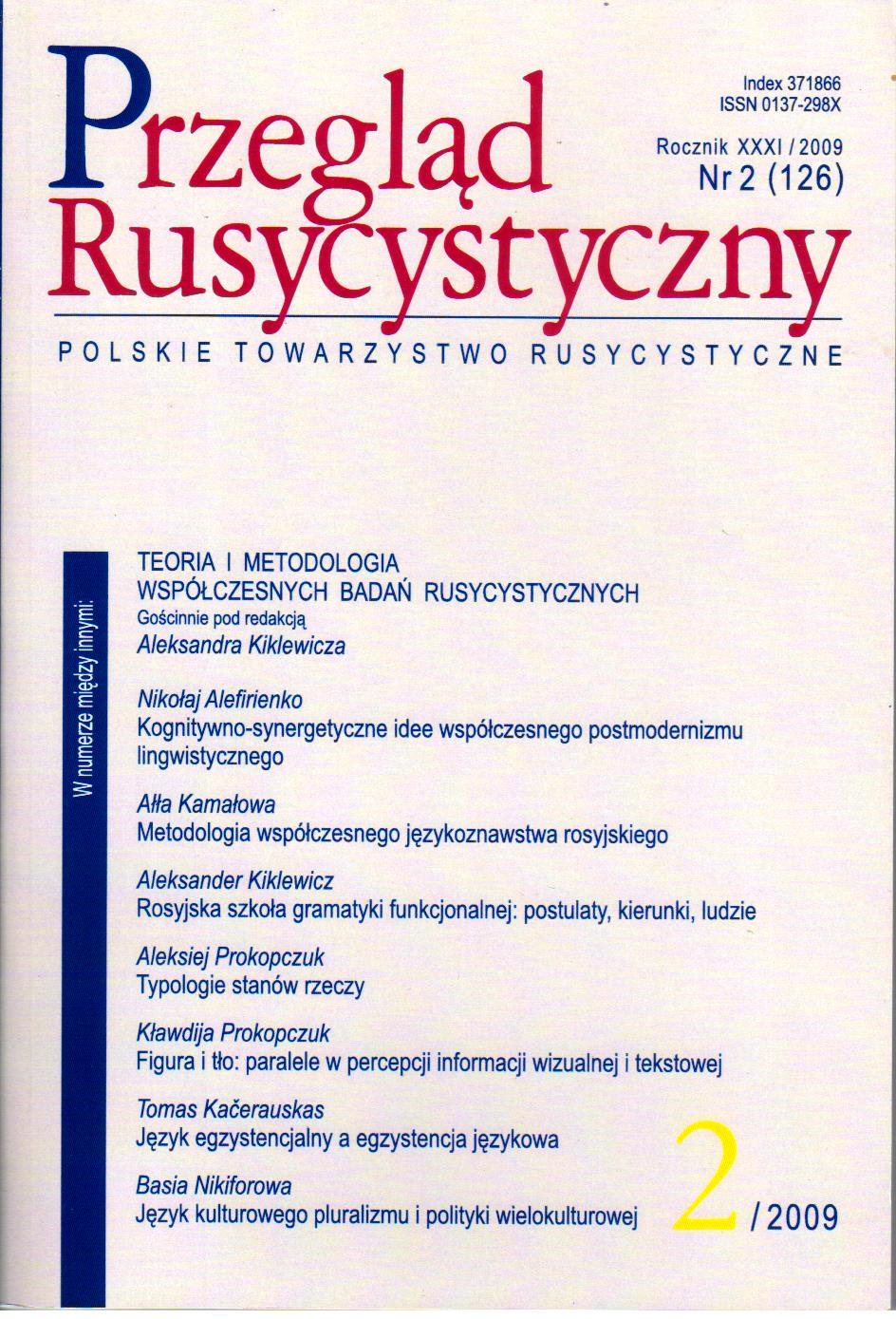Natura uprzedzeń religijnych
The nature of religious prejudices
Author(s): Olga NadskakułaSubject(s): Politics / Political Sciences, Language and Literature Studies, Law, Constitution, Jurisprudence, Sociology, Crowd Psychology: Mass phenomena and political interactions, Ethnic Minorities Studies, Philology, Identity of Collectives
Published by: Polskie Towarzystwo Rusycytyczne
Keywords: religious prejudices; stereotypes; Central and Eastern Europe; superstitions; "us" and "others"
Summary/Abstract: The changes, which occurred in Central and Eastern Europe after 1989, revealed domestic problems in each country and contributed to an outburst of antagonisms between neighbouring countries. Such countries are particularly exposed to various confl icts, what in consequence strengthens prejudice and mutual aversion.Firstly, the terminology needs to be specifi ed: there is a fundamental difference between a stereotype and a prejudice. According to Ida Kucz, stereotypes are characterised by rationality, intellectual elegance, and veiled hostility whereas a superstition classified associally more dangerous and may easily switch to an act of and overt hostility and hatred. Both prejudice and superstitions are the consequence of a natural need to distinguish between“us” and “the others”.One of the attributes which determines perceiving the others is religion. As the research show, there is interdependence between the level of religiosity and less tolerance towards others. Religion often fuels ethnic prejudice in an inter-group confl ict. It happens so when national identity is connected with religiosity.Doing the research on deep-rooted and fi xed Russian and Polish mutual prejudice one should pay special attention to cultural distinction of both nations. It emerges form Polish adherence to the Latin culture and Russian adherence to the Byzantine culture. Polish and Russian history, full of disagreements and wars, led to preservation of aversions and hostility. Confl icts were very often supported by the argument of defeating the „truthful faith”. The Romanticism defi nitely strengthened mutual prejudice since religion, as a spiritual foundation of culture and identity, was perceived as a main historic force and a value in itself.When it comes to contemporary Polish-Russian relations, one must agree that their interpretation in the historical context does not make the removal of prejudice easier.
Journal: Przegląd Rusycystyczny
- Issue Year: 2009
- Issue No: 125
- Page Range: 27-36
- Page Count: 10
- Language: Polish

